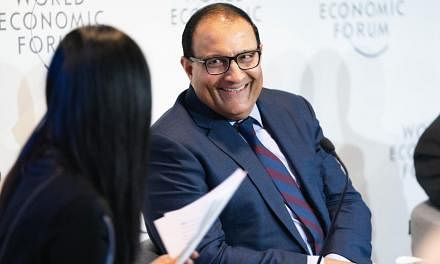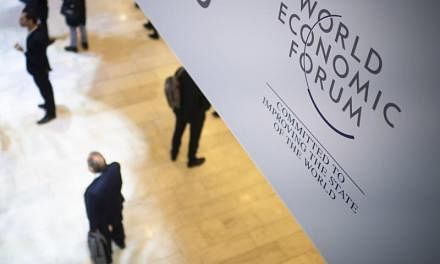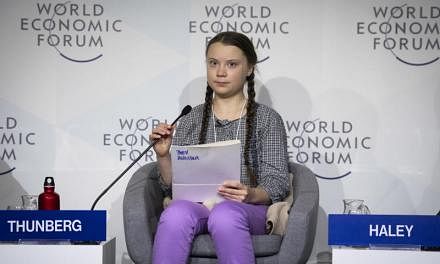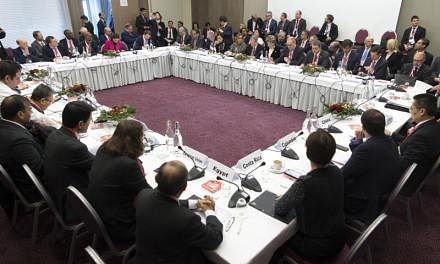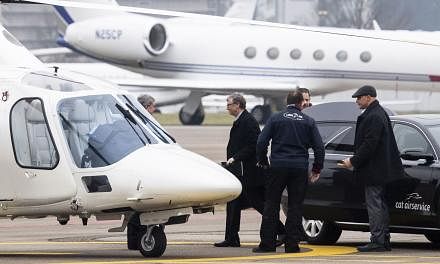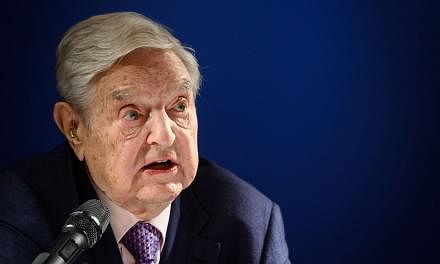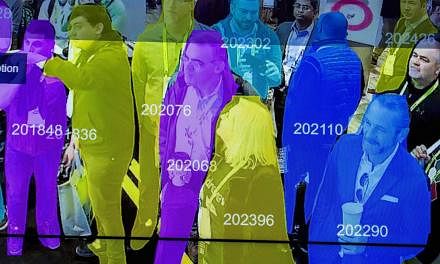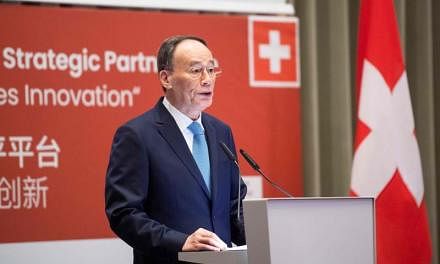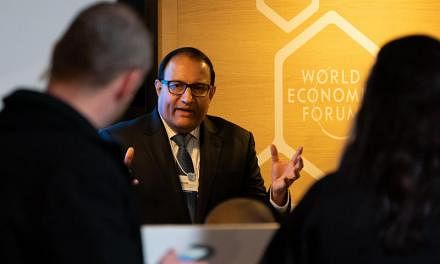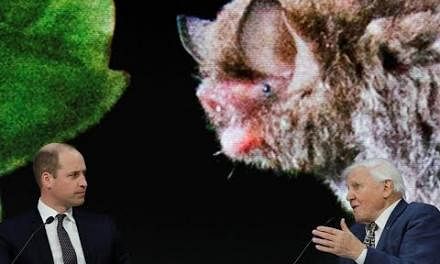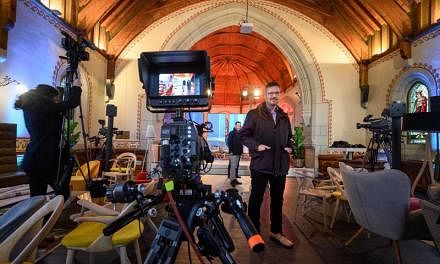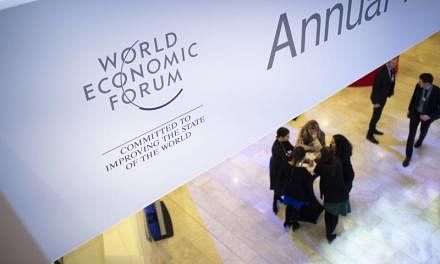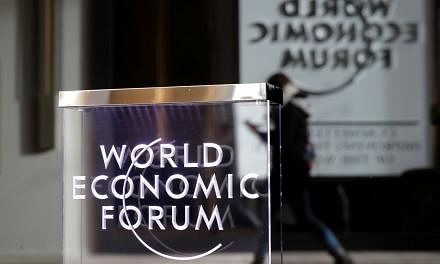DAVOS (AFP) - China and Europe take centre stage in front of the world's business elite at Davos on Wednesday (Jan 23), a day after Brazil's hard-right President Jair Bolsonaro promised reform and tried to win over sceptics about his environmental platform.
The annual World Economic Forum (WEF) is taking place this week in a global context of populism and concern for the catastrophic consequences of climate change.
Arriving by train to Davos on Wednesday is Greta Thunberg, a Swedish 16-year-old who has inspired protests by high-schoolers across Europe demanding stronger government action to fight global warming.
Top billing on the WEF stage will go to Chinese Vice-President Wang Qishan, who is tasked with negotiating a truce in the US-China trade war.
The annual conference in the Alpine ski resort was originally expected to see the two sides meet, but that was before the White House cancelled the US delegation's trip due to the government shutdown in Washington.
Beyond the trade war, Davos-goers are also concerned about the economic slowdown in China.
Economic experts predict growth of about 6 per cent in China for 2019, which is still relatively strong, but below the country's stellar rates of recent years.
Wang will be watched closely to see if Beijing has plans for stimulus or to liberalise the economy in order to restore ebbing investor confidence.
No 'happy globalisation'
The clash between Beijing and Washington, which is again upsetting the markets, has dampened spirits at Davos, as signs grow of a broader slowdown in the world economy.
"This is really the end of happy globalisation," said Pascal Cagni, former CEO of Apple Europe and head of the Business France lobby.
"We are finishing digesting the 2008 crisis and we realise that the global governance we need is not there," he said.
Europe also takes its turn at the WEF on Wednesday, with German Chancellor Angela Merkel making her traditional visit to the forum to promote the continent's leading economy.
However, Merkel comes to Davos weakened after being forced out of the leadership of her CDU party last year. She plans to leave office by 2020.
The Europeans as a whole come to Davos under the cloud of Brexit, with Britain's plan to divorce from the European Union blocked in Parliament.
Prime Minister Theresa May pulled out of the conference to handle Brexit as did the EU's chief negotiator Michel Barnier, both eager to avoid a "no-deal" exit on March 29.
But May's international trade secretary, Liam Fox, is one of a clutch of Cabinet members who have made the trip to reassure investors about Britain's post-Brexit future.
Japanese Prime Minister Shinzo Abe, after a recent trip to London to press May to secure a deal with Brussels, will also address the Davos audience on Wednesday.
The younger generation of European leadership will be represented by Spanish Prime Minister Pedro Sanchez, who was thrust unexpectedly to power in June after a parliamentary vote of no confidence in his predecessor.
Sanchez will meet top executives from US tech giants, including Sheryl Sandberg of Facebook, with Madrid's controversial decision to tax Silicon Valley on sales certain to be on the agenda.
The EU is struggling to agree on a bloc-wide tax on tech giants such as Facebook and Google. Several European countries - including Spain, France and Britain - are now looking to impose their own taxes.

